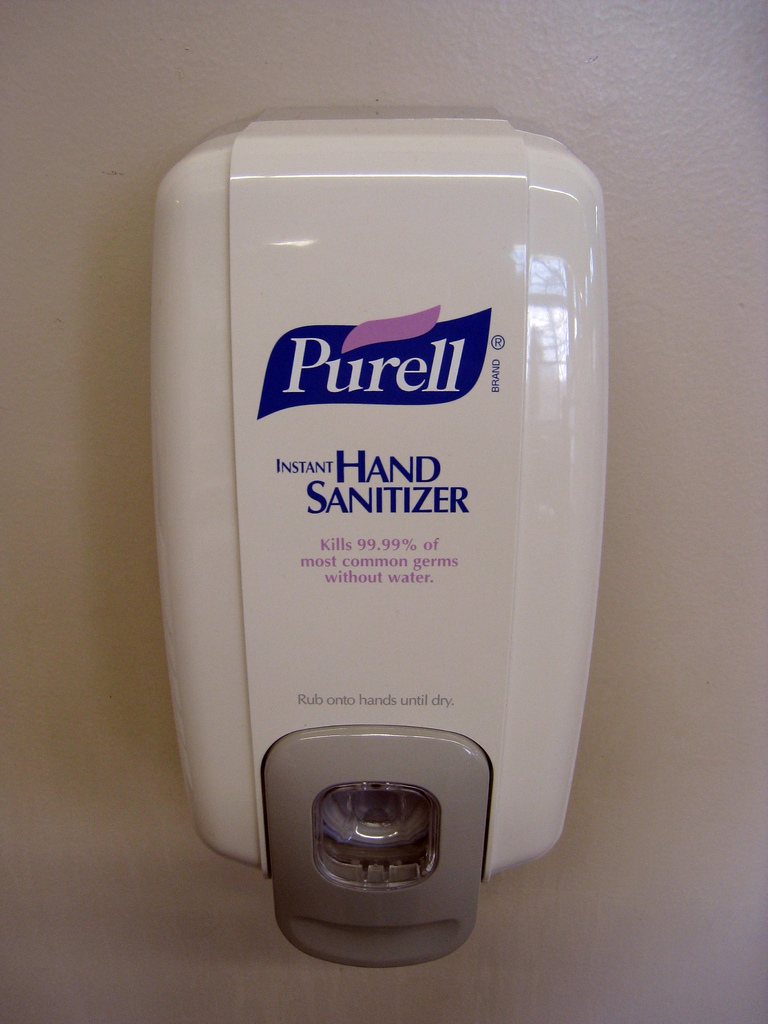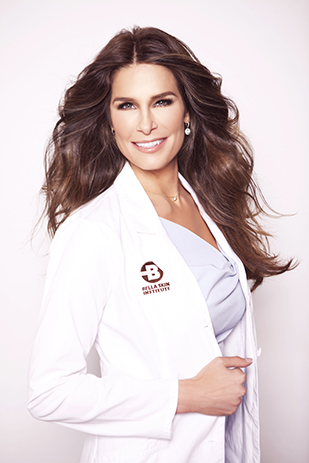
For many years, we’ve been told that plain soap and water just won’t cut it, and that frightening germs linger under every uncleaned nook and cranny.
If you need proof, please watch this hilariously dated 1992 commercial for Liquid Dial Antibacterial Soap.
But after a landmark verdict from the Food and Drug Administration last week, antibacterial soaps — the ones that were marketed for years as being better than a plain bar of Dove — are now banned, after it was found that antibacterial soap manufacturers failed to prove that their soap was any more effective than soap and water.
And while public health officials are celebrating the ruling banning these 19 different chemicals found in the soap, we wanted to get to the nitty-gritty of the matter — how does the ruling affect us in our day-to-day lives? Should we be washing our hands less? Does this mean we no longer have to shower? (That’s a definite no.)
CafeMom caught up with Dr. Damon Raskin, a board-certified internist and diplomate of the American Board of Addiction Medicine in Pacific Palisades, California, who is affiliated with Concierge Choice Physicians, to get the skinny on what exactly this means for clean-hand enthusiasts in the future.
Why did the FDA ban these chemicals?
In short, they were never any safer than normal soap, Dr. Raskin says. “The FDA’s job is to make sure these chemicals are safe and better than what is already on the market.” Then there’s the possible link between these chemicals and cancer found in mice.
“There’s also a suggestion that using these chemicals could breed resistance to antibiotics,” he adds. Public health officials have also warned that the chemicals can mess with your child’s endocrine system, which controls his or her hormones. Super scary stuff.
How did so many Americans come to use the soap?
It all boils down to marketing and clever ads. “Americans like cleanliness and they think that if something says antibacterial, it will be better than plain old soap,” Dr. Raskin tells us.
In other words — advertising created a problem that didn’t exist, then gave us the “perfect” product to remedy it.
What ingredients should I avoid, then?
Don’t buy anything with “antibacterial” on the label, or, better yet, do some detective work and be on the lookout for triclosan and triclocarban, two of the most common antibacterial ingredients.
What kinds of soap should we be using now?
A plain ol’ bar of soap and water still gets the job done, Dr. Raskin says. Still, you have to practice good hygiene. “I recommend a good handwashing technique, where people learn to scrub all parts of their hand for a good minute with warm water.”
But wait, does that mean we have to stop using hand sanitizer, too?
Thankfully, our Purell obsession can probably still go strong. “Hand sanitizer is mostly made up of alcohol … in fact, at least 60 percent alcohol, which is itself antibacterial,” he says. “It can be as effective, in terms of ridding yourself of germs, but there are some other chemicals in these hand sanitizers that have not yet proven to be safe, so we don’t know the long-term forecast.”
Dr. Raskin notes that just because soaps claim to kill more than 99.9 percent of germs doesn’t mean you should buy it.
“Studies have shown that our goal is not necessarily to get rid of every germ. Some germs in our environment can be helpful.”


